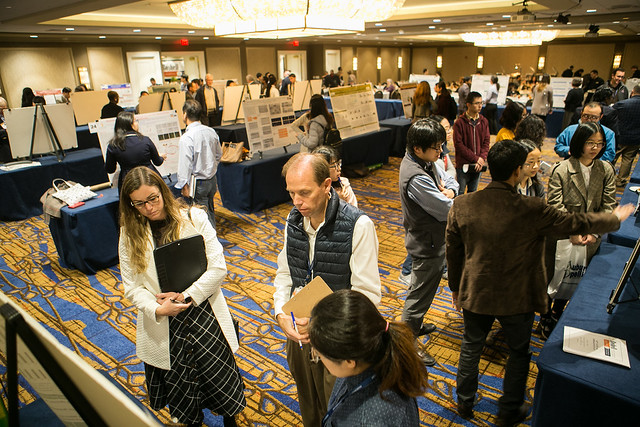Auburn University’s Boshell Research Day set for Sept. 17, features experts on diabetes, obesity
Article body
Auburn University’s 13th annual Boshell Research Day, scheduled for Sept. 17 at the Marriott Resort at Grand National in Opelika, Alabama, will bring together experts from around the U.S. to discuss current topics related to diabetes and the role of obesity in its development.
This year’s program will feature addresses from world-renowned speakers, including Dr. James G. Granneman, professor of molecular medicine, genetics and internal medicine and director of the Center for Integrative Metabolic and Endocrine Research, Wayne State University School of Medicine; Dr. Clayton E. Mathews, Sebastian Family Professor for Diabetes Research, University of Florida; and Ellen Gustafson, businessperson, social entrepreneur, sustainable food system activist, author and co-founder of FEED Projects and 30 Project.
In addition to these featured speakers, participants will attend both oral and poster presentations and have opportunities to network with fellow conference attendees.
Faculty from Auburn’s College of Veterinary Medicine and nine other colleges and schools across the university campus will join Boshell Research Day participants from the University of Alabama at Birmingham and Georgia State University for the one-day symposium.
The Boshell Diabetes and Metabolic Diseases Research Program, which aims to improve life for all people with diabetes, was established in 2001 through an endowment from the Diabetes Trust Fund in honor of its founder, Dr. Buris R. Boshell, a 1947 graduate of Auburn University, then Alabama Polytechnic Institute.
Through research focused on the prevention, cure and management of diabetes and its complications, Boshell researchers address many facets of both type 1 and 2 diabetes. Currently, more than 55 investigators from 10 different academic units across the Auburn campus hold Boshell membership and are actively involved in diabetes research, principally focused on the cardiac, neurological and metabolic aspects of the disease.
Dr. Robert Judd, chair of Auburn’s Boshell Diabetes and Metabolic Diseases Research Program and department head and professor in the Department of Anatomy, Physiology and Pharmacology, advances the Boshell mission of expanding and enhancing cross-disciplinary research opportunities, both on Auburn’s campus and at other institutions.
“We are attacking this disease from all directions through a variety of basic and clinical studies,” Judd said. “Research Day provides an important opportunity for us to bring together researchers and medical professionals from across the U.S. to discuss diabetes, obesity and their treatments.”
Registration for the 13th annual Boshell Research Day is now open. The conference is open to the public at a cost of $125 for all non-Boshell member attendees and no charge for current students, postdoctoral fellows and Boshell members.
Judd said Auburn is committed to providing the safest experience possible for all conference participants. To support this commitment, the university has implemented an indoor mask mandate, requiring all students, faculty, staff, visitors and event participants, including speakers, regardless of vaccination status, to wear face coverings when inside university buildings and while attending indoor events, except while dining or in private offices.
In addition to the university’s mask mandate, attendees are asked to self-monitor for COVID-19 symptoms, and, if symptoms are present, to stay home and contact their physician. Attendees should practice physical distancing when possible and sanitize their hands often.
For more information or to register for Boshell Research Day, visit the website at www.aub.ie/diabetes or email Judd at juddrob@auburn.edu.
Related Media
Media interested in this story can contact Communications Director Preston Sparks at (334) 844-9999 or preston.sparks@auburn.edu.
The College of Veterinary Medicine is the South's original and nation's seventh oldest veterinary medical program, celebrating 126 years. We prepare individuals for careers of excellence in veterinary medicine, including private and public practice, industrial medicine, academics, and research. The college provides programs of instruction, research, outreach, and service that are in the best interests of the citizens of the state of Alabama, the region, the nation, and the world.






